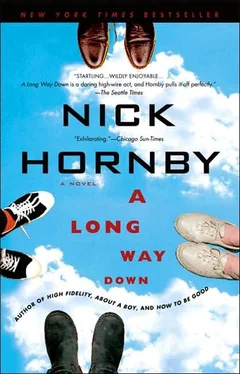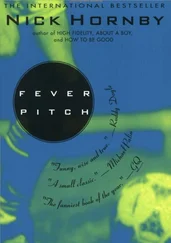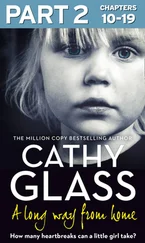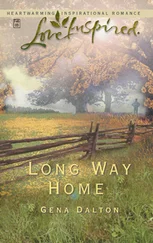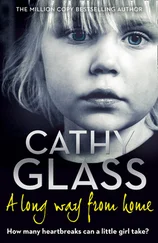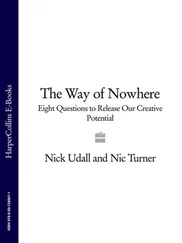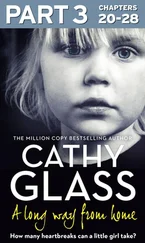“You can feel what you like,” I said. “But I’m not reassuring anyone about anything.”
“You have children of your own, I understand?”
“Sort of,” said Jess.
“I don’t need to spell out how worried I’ve been about Jess, and what a difference it would make to know that there was a sensible adult looking out for her.”
Jess sniggered unhelpfully.
“I know you wouldn’t be… You’re not exactly… Some of the tabloids would…”
“He’s worried about you sleeping with fifteen-year-olds,” said Jess.
“I’m not being interviewed for this job,” I said. “I don’t want it, and if you choose to give it to me, that’s your lookout.”
“All I want you to say is that if you see Jess getting herself into serious trouble, then you’ll either try to prevent it, or you’ll tell me about it.”
“He’d love to,” said Jess. “But he’s flat broke.”
“Why is money relevant?”
“Because say he had to keep an eye on me and I’d gone into some club or something, and they wouldn’t let him in because he’s skint… Well”
“Well what?”
“I could go in there and OD on smack. I’d be dead, just because you were too mean to stump up.”
I suddenly saw Jess’s point: a weekly wage of Ј250 from Britain’s lowest-rated cable TV station not only focuses the mind but stimulates empathy and imagination. Jess slumped lifeless in a toilet, all for the sake of twenty quid… It was too ghastly to contemplate, if you contemplated in the right spirit.
“How much do you want?” Crichton let out a sigh, as if everything—the conversation we were having, New Year’s Eve, my prison sentence—had been carefully plotted to lead to this moment.
“I don’t want anything,” I said.
“Yes, you do,” said Jess. “Yes he does.”
“How much does it cost to get into a club, these days?” Crichton asked.
“You can get through a hundred quid, easy,” said Jess.
A hundred quid? We were humiliating ourselves for the price of a decent dinner for two?
“I don’t doubt you can «get through» a hundred quid without trying. But he wouldn’t need to «get through» anything, would he? He’d only need the price of admission, if you’d overdosed on drugs. I’m presuming that he wouldn’t be stopping at the bar, if you were hovering between life and death in the toilet.”
“So what you’re saying is, my life isn’t worth a hundred quid to you. That’s nice, after what happened to Jen. I wouldn’t have thought you had enough daughters to spare.”
“Jess, that’s not fair.”
The front door slammed somewhere between the “not” and the “fair”, and Crichton and I were left staring at each other.
“I handled that badly,” he said, “didn’t I?”
I shrugged. “She was extorting money with menaces. Either you give her as much as she wants every time she asks for it, or she storms out. And I can see that might be a little… you know. Disconcerting. Given the family history.”
“I’ll give her as much as she wants, every time she asks for it,” he said. “Please go and find her.”
I left the house two hundred and fifty pounds richer; Jess was waiting for me at the end of the drive.
“I’ll bet you got double what we were asking for,” she said. “Always works, when you mention Jen.”
You won’t believe this—I don’t think I do now—but in my head, what happened to Jen had fuck all to do with New Year’s Eve. I could tell, from talking to the others and reading the papers, that no one else saw it that way, though. They were like, Ooooh, I get it: your sister disappeared, so you want to jump off a building. But it isn’t like that. I’m sure it must have been an ingredient, sort of thing, but it wasn’t the whole recipe. Say I’m a spaghetti Bolognese, well I reckon Jen is the tomatoes. Maybe the onions. Or even just the garlic. But she’s not the meat or the pasta.
Everyone reacts to something like that in different ways, don’t they? Some people would start support groups and all that; I know they would, because Mum and Dad are always trying to introduce me to some fucking group or another, mostly because the group was set up by someone who ended up getting a CSE or whatever off of the Queen. And some people would sit down, turn the TV on and watch for the next twenty years. Me, I just started messing around. Or rather, messing around became more like a full-time job, whereas previously it had been a hobby: some messing around had already been done before Jen went. I’ll be honest about that.
Before I go on, I’ll answer the questions that everyone always asks, just so’s you don’t sit there wondering and not concentrating on what I’m saying. No, I don’t know where she is. Yes, I think she’s alive. Why I think she’s alive: because that whole thing with the car in the car park looked phony to me. What does it feel like, having a missing sister? I can tell you. You know how if you lose something valuable, a wallet or a piece of jewellery, you can’t concentrate on anything else? Well, it feels like that all the time, every day.
There’s something else people ask: Where do you think she is? Which is different from: Do I know where she is? At first I didn’t understand that the two questions were different. And then when I did understand, I thought that the Where do you think she is? question was stupid. Like, well if I knew that I’d go and look for her. But now I understand it as being a more poetic question. “Cos, really, it’s a way of asking what she was like. Do I think she’s in Africa, helping people? Or do I think she’s on one long permanent rave, or writing poems on a Scottish island, or travelling through the bush in Australia? So here’s what I think. I think she has a baby, maybe in America, and she’s in a little town somewhere sunny, Texas, say, or California, and she’s living with a man who works hard with his hands and looks after her and loves her. So that’s what I tell people, except of course I don’t know whether I’m telling them about Jen or about me.
Oh, and one more thing—especially if you’re reading this in the future, when everyone’s forgotten about us and how things turned out for us: don’t sit around hoping for her to pop up later on, to rescue me. She doesn’t come back, OK? And we don’t find out she’s dead, either. Nothing happens, so forget about it. Well, don’t forget about her, because she’s important. But forget about that sort of ending. It’s not that sort of story.
Maureen lives halfway between Toppers’ House and Kentish Town, in one of those little poky streets full of old ladies and teachers. I don’t know for sure they’re teachers, but there are an awful lot of bikes around—bikes and recycling bins. It’s shit, recycling, isn’t it? I said to Martin, and he was like, If you say so. He sounded a bit tired. And I asked him if he wanted to know why it was shit, but he didn’t. Just like he hadn’t wanted to know why France was shit, either. He wasn’t in a chatty mood, I suppose.
It was just me and Martin in the car because JJ didn’t want a lift with us, even though we nearly went past his flat. JJ probably would have helped smooth the conversation along a bit, I think. I wanted to talk because I was nervous, and that probably made me say stupid things. Or maybe stupid is the wrong word, because it’s not stupid to say France is shit. It’s just a bit abrupt or whatever. JJ could have put a sort of ramp up to my sentences to help people skateboard down from them.
I was nervous because I knew that we were going to meet Matty, and I’m sort of not good with disabled people. It’s nothing personal, and I don’t think I’m disablist, because I know they’ve got rights to an education and bus passes and that; it’s just that they turn my stomach a bit. It’s all that having to pretend they’re just like you and me when they’re not, really, are they? I’m not talking “disabled” like people who have only got one leg, say. They’re all right. I’m talking about the ones who aren’t right up top, and shout, and make funny faces. How can you say they’re like you and me? OK, I shout and make funny faces, but I know when I’m doing it. Most of the time I do, anyway. With them there’s no predicting, is there? They’re all over the place.
Читать дальше
